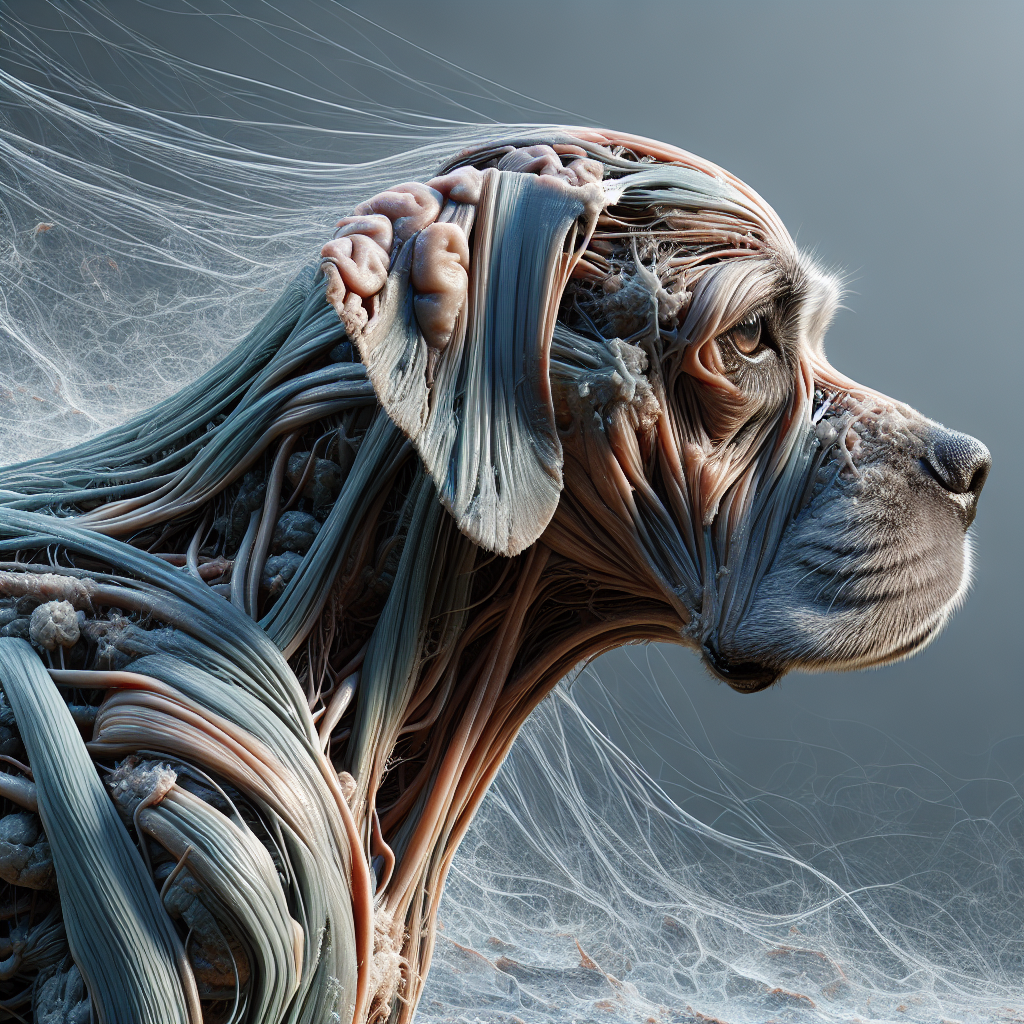Understanding Degenerative Myelopathy
Degenerative myelopathy (DM) in dogs is a slowly progressive disease that affects the spinal cord, resulting in changes and damage to the myelin sheath. This condition typically begins to display between 5 and 14 years of age (Pet Health and Nutrition Center). While any dog can suffer from DM, certain breeds are at a higher risk.
Causes and Onset
The exact cause of degenerative myelopathy is still unknown, but it is believed to be a combination of genetic and environmental factors. Certain genetic variations may increase a dog’s risk of developing DM, and environmental factors may also play a role.
DM is considered a disease of middle-aged to older dogs, typically appearing around 8 years of age or older. It is most commonly seen in breeds such as German Shepherds, Pembroke Welsh Corgis, Boxers, and more. The German Shepherd, in particular, has a higher prevalence of DM compared to other breeds.
Breeds at Risk
While DM can affect any dog breed, there are certain breeds that face an increased risk of developing this disease. These breeds include:
- German Shepherds
- Pembroke Welsh Corgis
- Boxers
- Chesapeake Bay Retrievers
- Rhodesian Ridgebacks
- Standard Poodles
It’s important to note that DM has been identified in more than 24 different breeds to date, so vigilance is necessary for all dog owners (VCA Hospitals). Understanding the breeds at risk can help dog owners and breeders be proactive in monitoring and managing DM in their dogs.
By understanding the causes and onset of degenerative myelopathy and recognizing the breeds at risk, dog owners can take steps towards early detection and appropriate management of this condition. Regular check-ups with a veterinarian and awareness of the symptoms of degenerative myelopathy (symptoms of degenerative myelopathy in dogs) are crucial in providing the best possible care for dogs affected by this disease.
Diagnosis and Testing
To effectively treat degenerative myelopathy in dogs, a proper diagnosis is essential. The diagnosis of degenerative myelopathy (DM) in dogs can be challenging and often requires multiple tests. Two key diagnostic approaches include DNA testing and clinical signs assessment.
DNA Testing
One of the primary methods for diagnosing DM in dogs is through DNA testing. The Orthopedic Foundation for Animals offers a test that can identify the SOD-1 gene mutation, which is a major risk factor for DM in dogs. This autosomal recessive genetic disease can be avoided by testing at-risk breeds for the SOD-1 mutation before breeding, preventing the transmission of the abnormal gene to future generations (VCA Hospitals). DNA testing is particularly important for breeds that are predisposed to DM, such as German shepherds, Siberian huskies, collies, boxers, and Golden retrievers, among others (VCA Hospitals).
Clinical Signs
Clinical signs play a crucial role in the diagnosis of DM in dogs. While the disease is considered to primarily affect middle-aged to older dogs, it can also occur in younger dogs on rare occasions (VCA Hospitals). The initial stages of DM often present with subtle signs, such as weakness in the hind limbs, loss of coordination, and difficulty rising from a lying position. As the disease progresses, these signs worsen, leading to paralysis in the hind limbs. It’s important to note that DM does not typically affect bladder and bowel function in the initial stages, but as the disease advances, urinary and fecal incontinence may develop (VCA Hospitals).
To diagnose DM, veterinarians may perform a variety of tests, including X-rays, spinal imaging, cerebrospinal fluid analysis, tissue biopsies, neuromuscular tests, and DNA testing for the SOD-1 mutation. It’s important to note that a definitive diagnosis through histopathology of the spinal cord is only possible post-mortem.
By utilizing DNA testing and assessing clinical signs, veterinarians can make an accurate diagnosis of DM in dogs, enabling them to develop an appropriate treatment plan. Early detection and intervention are crucial for managing the disease and improving the quality of life for dogs affected by DM.
Traditional Treatment Options
When it comes to the treatment of degenerative myelopathy in dogs, the traditional veterinary medicine approach involves several treatment options. However, it’s important to note that there is currently no known cure for degenerative myelopathy (DM) in dogs. Let’s explore the veterinary medicine approach and the limitations of standard treatments.
Veterinary Medicine Approach
Standard veterinary medicine treatment for degenerative myelopathy may include the following:
-
Corticosteroids: Corticosteroids, such as prednisone, may be prescribed to manage inflammation and reduce spinal cord swelling. However, it is important to note that corticosteroids are not considered effective stand-alone treatments for degenerative myelopathy.
-
Non-Steroidal Anti-Inflammatory Drugs (NSAIDs): NSAIDs, like carprofen or meloxicam, may be recommended to alleviate pain and discomfort associated with degenerative myelopathy. These medications help reduce inflammation and provide some relief, but they do not slow down the progression of the disease.
-
Antioxidants: Antioxidants, such as vitamin E and coenzyme Q10, are often prescribed to help combat oxidative stress and promote overall neurological health. However, synthetic, isolated vitamins and minerals are typically used in standard treatments. It is important to note that whole foods are recommended for better results in terms of providing a more balanced source of nutrients for the dog’s overall well-being.
While these treatment options may provide some relief and support for dogs with degenerative myelopathy, it is important to manage expectations. The primary goal of traditional treatments is to improve the dog’s quality of life and manage symptoms rather than halt or reverse the progression of the disease.
Limitations of Standard Treatments
Despite the use of traditional treatment options, it is crucial to understand the limitations associated with them. It’s important to note the following points:
-
Lack of a Cure: There is currently no known cure for degenerative myelopathy in dogs. Standard treatments aim to manage symptoms and provide supportive care rather than offer a definitive solution to the underlying disease.
-
Disease Progression: Degenerative myelopathy is a progressive disease, and most dogs diagnosed with DM will become paraplegic within six months to a year (Veterinary Referral Associates). While treatment may help improve quality of life and slow down progression to some extent, it is important to be aware that the disease tends to progress quickly.
-
Concurrent Problems: Dogs with degenerative myelopathy may experience other concurrent problems, such as arthritis or hip dysplasia. Treatment of these additional issues may provide some relief and improve the dog’s overall comfort, but it does not directly address the degenerative myelopathy itself.
It’s important to have realistic expectations when it comes to the traditional treatment options for degenerative myelopathy. Prioritizing the dog’s comfort, providing a supportive environment, and exploring other holistic management strategies can also play a crucial role in improving the overall well-being of dogs with degenerative myelopathy. In the following sections, we will explore some holistic management strategies and natural remedies that may complement traditional treatments for degenerative myelopathy in dogs.
Holistic Management Strategies
When it comes to managing degenerative myelopathy in dogs, a holistic approach can be beneficial in supporting your dog’s overall well-being. This approach focuses on addressing multiple aspects, including high-value nutrition and environmental factors, to help slow down the progression of the disease and enhance your dog’s quality of life.
High-Value Nutrition
Providing your dog with high-value nutrition is an essential component of the holistic degenerative myelopathy protocol. This approach aims to support healing, slow the degenerative process, repair damaged myelin sheath, and promote lean muscle mass. It involves feeding your dog a well-balanced diet that is rich in nutrients and free from potential triggers or allergens.
Consider incorporating a raw food diet, which provides natural, unprocessed ingredients that are highly digestible and packed with essential nutrients. This can help optimize your dog’s overall health and support their immune system. Additionally, including supplements such as Daily Multi Plus, Myelin Sheath, Nerve Tonic, and Immune Balance can help provide specific nutrients and support the body’s healing processes (Pet Health and Nutrition Center).
Environmental Factors
Taking into account environmental factors is another important aspect of holistic management for degenerative myelopathy in dogs. This involves creating a safe and supportive environment that minimizes potential triggers and maximizes your dog’s comfort.
Ensure that your dog’s living space is free from hazards and obstacles that may cause falls or accidents. Provide supportive bedding and easy access to food, water, and potty areas. You may also consider using supportive devices such as harnesses or slings to assist with mobility and prevent strain on your dog’s weakened limbs.
Creating a calm and stress-free environment is beneficial for dogs with degenerative myelopathy. Reduce noise levels and limit exposure to stressful situations. Additionally, consider incorporating activities that stimulate your dog’s mind, such as puzzle toys or gentle exercises that are appropriate for their condition.
By focusing on high-value nutrition and optimizing the environment, you can support your dog’s overall well-being and potentially slow down the progression of degenerative myelopathy. However, it’s important to note that holistic management strategies should be used in conjunction with guidance from your veterinarian and any traditional treatment options that may be recommended for your dog’s specific case.
Understanding and implementing these holistic strategies can help enhance your dog’s quality of life and provide them with the best possible care throughout their journey with degenerative myelopathy.
Natural Remedies and Supplements
In addition to traditional treatment options, there are various natural remedies and supplements that may help alleviate symptoms and support dogs with degenerative myelopathy. These natural approaches can be used in conjunction with veterinary guidance and should be tailored to each individual dog’s needs.
Daily Multi Plus
One popular supplement for dogs with degenerative myelopathy is Daily Multi Plus. This supplement is formulated with essential vitamins, minerals, and antioxidants to support overall health and well-being in dogs. It aims to provide the necessary nutrients that may be lacking in a dog’s diet, potentially aiding in the maintenance of a healthy nervous system.
Nerve Tonic
Nerve Tonic is another supplement that may be beneficial for dogs with degenerative myelopathy. This supplement is designed to support the nervous system and promote a sense of calmness. It may help reduce anxiety and stress levels in dogs, contributing to an overall improved quality of life.
Alternative Therapies
In addition to supplements, alternative therapies can also be considered as part of a holistic management approach for dogs with degenerative myelopathy. These therapies may include acupuncture, cold laser therapy, massage, and hydrotherapy. These therapies aim to promote relaxation, improve circulation, and provide pain relief.
It’s important to note that while natural remedies and supplements can potentially provide support, they should not be considered as a replacement for veterinary care. Always consult with a veterinarian before introducing any new supplements or alternative therapies into your dog’s treatment plan. They can provide guidance on the appropriate dosage, potential interactions, and help ensure the overall well-being of your furry friend.
Remember, each dog’s condition is unique, and what works for one may not work for another. It’s crucial to monitor your dog’s response to any natural remedies or supplements and make adjustments as necessary. By working closely with your veterinarian and considering a combination of traditional and natural approaches, you can provide the best care and support for your dog with degenerative myelopathy.
Future Research and Promising Treatments
As research in the field of degenerative myelopathy (DM) in dogs progresses, there is hope for the development of effective treatments. Two promising avenues of research include clinical trials on riluzole and studies conducted by the AKC Canine Health Foundation (CHF).
Clinical Trials on Riluzole
Riluzole, a drug that was the first FDA-approved medication to treat ALS in humans, is being studied as a potential treatment for dogs with DM. A recently awarded grant from the AKC Canine Health Foundation (CHF) is focusing on evaluating the safety and efficacy of riluzole in treating DM (AKC Canine Health Foundation).
Riluzole works by preventing the build-up of excitatory nerve signaling molecules that can kill nerve cells in affected dogs and humans. In human ALS patients, the drug has been shown to prolong the quality of life. The study aims to assess the safety of oral riluzole use in dogs, conduct a multi-site clinical trial to evaluate its efficacy, and demonstrate the utility of a recently discovered biomarker to track the clinical progression of DM in dogs.
Dr. Joan Coates, the Principal Investigator of the study and a veterinary neurologist at the University of Missouri, notes that Riluzole addresses a pathophysiologic mechanism shared in DM and ALS. The collaboration among researchers from different institutions allows for more dogs and owners to participate in clinical trials, accelerating progress in developing treatments for DM.
AKC Canine Health Foundation Studies
The AKC Canine Health Foundation (CHF) plays a significant role in funding studies aimed at developing more accurate diagnostic tests and effective treatments for DM in dogs. Their support has led to various advancements in understanding the disease.
In the context of DM, previous CHF research grants have contributed to the identification of a genetic mutation and gene modifiers that increase the risk of developing DM in certain dog breeds, the description of structural changes in the nervous system defining DM, and the study of a molecule that can monitor disease progression. By funding studies like the clinical trial on riluzole, the CHF and its donors are actively driving progress in finding better treatments for DM (AKC Canine Health Foundation).
The ongoing research and clinical trials in the field of DM offer hope for improving the quality of life for dogs affected by this progressive disease. By supporting these efforts, researchers, organizations, and dog owners are working together to advance the understanding of DM and develop effective treatments for this debilitating condition.






